CONTENTS
- 0.1 RelatedPosts
- 0.2 Is Yahusha YAHUAH (“Is Jesus God”): Should We Worship the Messiah 10
- 0.3 Discover How to Follow the True Biblical Messiah (John 14:6)
- 1
- 2 Meaning Of My Lord and My God
- 3 How do we prove John 20:28?
- 4 Did any other disciple refer to him as Elohiym (God)?
- 5 What the Apostles believed after the resurrection
- 6 Conversation leading up to Thomas’ declaration
- 7 My Master (Yahusha) and my God (YHWH)
- 8 Conclusion; Meaning Of My Lord And My God
Meaning Of My Lord and My God
John 20:28
Thomas said to him, “My Lord and my God!”
The meaning of my Lord and my God is another of those controversial topics and the answer usually depends on one’s general belief.
It is tempting to use this line to say Thomas was saying Yahusha was YHWH Almighty. Indeed, it is one of those verses used in defense of worshipping the Messiah as the Father.
However, we have seen time and time again through this series, that the Messiah worshipped the Father and told us to do so. So also did the Apostles. Importantly, he never referred to himself as the Father, but confessed the Father as his “God.”.
Before we begin, let’s see a summary of what we have looked at so far:
- Did Old Testament Prophecy Speak Of a Coming Messiah Who Would Be YHWH? – Should We Worship the Messiah Part 6
- I And My Father Are One: Does This Mean The Messiah Is The Father? – Should We Worship the Messiah Part 5
- Is Isaiah 9:6 Saying The Messiah Is The Mighty Elohiym (God)?: Should We Worship the Messiah Part 4
- Did the Messiah Worship Himself? Should We Worship The Messiah (Part 3):
- Worship In the Mind of the Hebrew: Should We Worship the Messiah Part 2
- Who did the Messiah and Apostles Worship? Should We Worship The Messiah Part 1
How do we prove John 20:28?
Before I start, I apologize to the purists who do not use the title “God.” However, to most easily explain this post (which is targeted to Christians), I will use what is written in the King James Version of the Bible (1 Cor 9:19-23).

Now how do you prove John 20:28? Thomas said to him, “My Lord (Master) and my God!”.
It is one of those verses that say so much, yet say so little. So we will have to use the rest of the Bible to prove what he meant.
First of all a general rule of scripture taken from Torah (see also Deut 17:6, 19:15)
2 Corinthians 13:1
This is the third time I am coming to you. In the mouth of two or three witnesses shall every word be established.
Did any other disciple refer to him as Elohiym (God)?
So first of all, for us to believe that Thomas meant Yahusha was Elohiym or “God” as it is popularly called, there must be another disciple (witness) who recognized him as Elohiym or somewhere else in the Bible where he was called Elohiym or “God” as the Bible states. There must be another witness.

On the contrary, there is nowhere else in the Bible where he is referred to as Elohiym (God). Indeed the Yahudiy wanted to stone him for making himself the son of God, not for making himself YHWH. There is nowhere else where he calls himself Elohiym. Instead, he said he was the Messiah (John 4:25-26) and the son of “God” (John 10:36).
See: Who did the Messiah and Apostles worship?
Peter’s Declaration
In fact, the greatest honour one of his disciple got was when he professed him as the Messiah, the Son of “God.”
Mat 16:16 — Mat 16:17
And Simon Peter answered and said, Thou art the Messiah, the Son of the living God. And Yahusha answered and said unto him, Blessed art thou, Simon Barjona: for flesh and blood hath not revealed it unto thee, but my Father which is in heaven.
And Peter was rewarded for having this revelation, because it must have been YHWH who revealed it to him…
Mat 16:18 — Mat 16:19
And I say also unto thee, That thou art Peter, and upon this rock I will build my church; and the gates of hell shall not prevail against it. And I will give unto thee the keys of the kingdom of heaven: and whatsoever thou shalt bind on earth shall be bound in heaven: and whatsoever thou shalt loose on earth shall be loosed in heaven.
A reminder of the core revelation…
That Yahusha was the Messiah, the son of YHWH (“God”). Who revealed it to Peter? The Father in heaven.
Therefore, if the Messiah was YHWH, why the great hoopla for Peter’s revelation that the Messiah was the SON of the Father? The honor would then be if he said the Messiah was YHWH, but he did not, yet was he honored!

What the Apostles believed after the resurrection
Now we have shown previously that the Apostles (after Yahusha’s death and resurrection) still maintained the same belief, the he was the Messiah, the son of “God.”
This was Peter
Act 2:36
Therefore let all the house of Israel know assuredly, that God hath made that same Yahusha, whom ye have crucified, both Master and Messiah.
This was Shaul
Act 9:20
And straightway he preached MESSIAH in the synagogues, that he is the Son of God.
Conversation leading up to Thomas’ declaration
Now it was Yahuchanon (John) who wrote what Thomas said…so we will soon look at what John believed.
Before we do that, Let us break down the conversation leading up to Thomas’ declaration of “my Master and my “God.”
Jn 20:24 — Jn 20:25
But Thomas, one of the twelve, called Didymus, was not with them when Yahusha came. The other disciples therefore said unto him, We have seen the Master. But he said unto them, Except I shall see in his hands the print of the nails, and put my finger into the print of the nails, and thrust my hand into his side, I will not believe.
Thomas did not believe that the other disciples saw Yahusha. He needed physical evidence to believe. He had to see for himself.

Jn 20:26 — Jn 20:27
And after eight days again his disciples were within, and Thomas with them: then came Yahusha, the doors being shut, and stood in the midst, and said, Peace be unto you. Then saith he to Thomas, Reach hither thy finger, and behold my hands; and reach hither thy hand, and thrust it into my side: and be not faithless, but believing.John 20:28
And Thomas answered and said unto him, My Master and my God.John 20:29
Yahusha saith unto him, Thomas, because thou hast seen me, thou hast believed: blessed are they that have not seen, and yet have believed.
What did Yahuchanon (John) believe?
Believed what? Did Yahusha mean that Thomas believed he was YHWH Almighty? We will see what Yahshua meant by “believe” when we look at what John, the writer believed.
Jn 20:30 — Jn 20:31
And many other signs truly did Yahusha in the presence of his disciples, which are not written in this book:But these are written, that ye might believe that Yahusha is the Messiah, the Son of God; and that believing ye might have life through his name.
See That? Immediately after telling the story of doubtful Thomas, John told us that it was written for us to believe that Yahusha was the Messiah, the Son of YHWH, not that he was YHWH! So John is indirectly telling us that John 20:28 could not possibly mean that Thomas was saying Yahusha was the Father!

Belief of the Yahudiy (Jews)
As I said yesterday, the core tenet of Hebrew (Israel/Judah) belief is the Shema…
Deuteronomy 6:4
Hear, O Israel: YHWH our Elohiym is one YHWH:
They also reject a man-god, which comes straight from pagan mythology. The penalty for such belief is stoning as it is idolatry. This belief by the way, that “Jesus is God,” comes straight from the pagan influence in Christianity, which is a whole separate, massive topic.
Their belief of the promised Messiah is that of a man sent by YHWH as his servant/messenger. To this day this is the belief of the modern Jews, most of whom some may argue are not true Jews. However, YHWH provides for strangers to be added to his people (Isaiah 56).
Now if the early believers in Yahusha had believed him, a man, to be YHWH, how could the early disciples and Apostles worship harmoniously alongside Jews in the temple?
Acts 2:46
And they, continuing daily with one accord in the temple, and breaking bread from house to house, did eat their meat with gladness and singleness of heart,
By the way, I watched a video last night and the modern Torah keeping Jews were saying Christians are idolators with their man-god and trinity. That is why Christians can’t reach them as Christians preach a false, pagan laced gospel.
Here is a summary of the belief even of modern Jews:
Jewish response: “Nowhere does our Bible say that the Messiah would be a god or G-d-like. The very idea that G-d would take on human form is repulsive to Jews because it contradicts our concept of G-d as being above and beyond the limitations of the human body and situation. Jews believe that G-d alone is to be worshiped, not a being who is His creation, be he angel, saint, or even the Messiah himself.” – from The Jewish Concept of Messiah.

The point is though, the thought of calling Yahusha YHWH would be totally against their way of thinking. That is why the highest place they gave the Messiah was that he was the son of the Most High!
John emphasized that fact here:
John 20:31
But these are written, that ye might believe that Yahusha is the Messiah, the Son of God; and that believing ye might have life through his name.
Related: Law Done Away With or Magnified? What Did Paul Really Teach Concerning the Law?
My Master (Yahusha) and my God (YHWH)
So now we have excluded the possibility of it meaning he was saying Yahusha was Elohiym (God), there is only one other thing it could mean…
Thomas was referring to 2 separate persons.
My Master (Yahusha) and my God (YHWH).
Thomas was expressing his surprise, joy and belief that this was indeed Yahusha (my Master) and then acknowledging that it was through the power of YHWH that he was raised from the dead. He had finally seen the resurrected Messiah; that made him believe.
Background
Now let us look at the background to see how Thomas could have made that statement, my Master and my God.
These from John 14 were said in the presence of Thomas.
John 14:1
Let not your heart be troubled: ye believe in God (my God), believe also in me (my Master).

The Mashiach (Messiah) was telling his disciples that if they believe in YHWH Elohiym, they should ALSO believe in him. This is what Thomas declared here, his belief in Master as the son of YHWH and at the same time declaring the manifestation through the power of the Father:
Joh 20:28 And Thomas answered and said unto him, My Master and my God.
Now let us continue…
Jn 14:3 — Jn 14:4
And if I go and prepare a place for you, *I will come again*, and receive you unto myself; that where I am, there ye may be also. And whither I go ye know, and the way ye know.Jn 14:5 — Jn 14:6
Thomas saith unto him, Master, we know not whither thou goest; and how can we know the way? Yahusha saith unto him, I am the way, the truth, and the life: no man cometh unto the Father, but by me.
We see how ludicrous it is to say Yahusha is the Father if we look at John 14:6…no man cometh to the Father but by me. If he was the Father, think how silly it is to say, no man cometh to me (the Father) but by me (the Father).
Conclusion; Meaning Of My Lord And My God
One verse cannot make a doctrine. It has to have a witness. The thought that Thomas was saying Yahusha was “God” does not have a witness.
Master and God
Now let us conclude with several witnesses for “and my God” meaning Thomas was acknowledging YHWH for raising Yahusha from the dead as well as at the same time acknowledging the Master Yahusha.
1Co 8:6
But to us there is but one God, the Father, of whom are all things, and we in him; and one Master Yahusha HaMashiach, by whom are all things, and we by him.
The preceding verse was a straight declaration of belief. Sha’ul was speaking for all the Apostles and early believers. They believed in only one Elohiym (God) and one Master. This is what Thomas meant by “my Master (Yahusha) and my God (YHWH).”
Examples of Similar Usage
Anyway, let us give a few more examples of this double classification in the new testament.
1Co 1:3
Grace be unto you, and peace, from God our Father, and from the Master Yahusha HaMashiach.Rom 1:7
To all that be in Rome, beloved of God, called to be saints: Grace to you and peace from God our Father, and the Master Yahusha HaMashiach..Gal 1:3
Grace be to you and peace from God the Father, and from our Master Yahusha HaMashiach.,Col 1:3
We give thanks to God and the Father of our Master Yahusha HaMashiach, praying always for you,2Ti 1:2
To Timothy, my dearly beloved son: Grace, mercy, and peace, from God the Father and HaMashiach Yahusha our Master.Tit 1:4
To Titus, mine own son after the common faith: Grace, mercy, and peace, from God the Father and the Master Yahusha HaMashiach our Saviour.1Pe 1:3
Blessed be the God and Father of our Master Yahusha HaMashiach, which according to his abundant mercy hath begotten us again unto a lively hope by the resurrection of Yahusha HaMashiach from the dead,2 Jo 1:3
Grace be with you, mercy, and peace, from God the Father, and from Master Yahusha HaMashiach, the Son of the Father, in truth and love.
Here in 2 John 1:3, the classification is made explicitly clear. (1) God the Father (2) the Master Yahusha HaMashiach (3) the Master Yahusha being declared the Son of the Father.
Jud 1:1
Jude, the servant of Yahusha HaMashiach, and brother of James, to them that are sanctified by God the Father, and preserved in Yahusha HaMashiach, and called:Gal 1:1
Galatians1 Paul, an apostle, (not of men, neither by man, but by Yahusha HaMashiach, and God the Father, who raised him from the dead; )
Here in Galations 1:1, the Father is being shown to be a separate being who raised the man Yahusha (1 Tim 2:5) from the dead. This is confirmed in below.
Col 2:12
Buried with him in baptism, wherein also ye are risen with him through the faith of the operation of God, who hath raised him from the dead.1Pe 1:21
Who by him do believe in God, that raised him up from the dead, and gave him splendor (glory); that your faith and hope might be in God.
The Most High Father raised the Messiah from the dead and gave him kavod/splendor/honor/glory. If Thomas was accurately declaring that the Messiah was the Most High, how could the Messiah raise himself up from the dead. Furthermore, how can the Most High Almighty YHWH die?
Additionally, how can he honor himself/give himself glory? Self glory is narcissism, which is idolatry.
Was Thomas Declaring the Messiah to be Elohiym?
In John 20:28, Thomas was actually declaring his belief in Yahusha as the Messiah and at the same time, declaring his belief in the Elohiym of Abraham, Yitschaq and Ya’aqov. He was declaring his belief in the manifest power of YHWH the Elohiym of Israel in raising the Messiah from the dead.
The true meaning of my Lord and my God? He was NOT declaring the messiah as “God.” In fact, he was declaring his faith in both the Messiah and the Father as spoken by the Messiah:
John 14:1
Let not your heart be troubled: ye believe in God (my God), believe also in me (my Master).
In fact, this perfectly matches the description of the chosen saints:
Rev 14:12 Here is the patience of the saints: here are they that keep the commandments of God (my God), and the faith of Yahusha (my Master).
Indeed John declared himself as having the same belief by saying:
Rev 1:2 Who bare record of the word of God (my God), and of the testimony of Yahusha HaMashiach (my Master), and of all things that he saw.
So anyone else has any other interpretation THAT DOES NOT CONTRADICT THE BIBLE, Let us hear it and test it against the word.

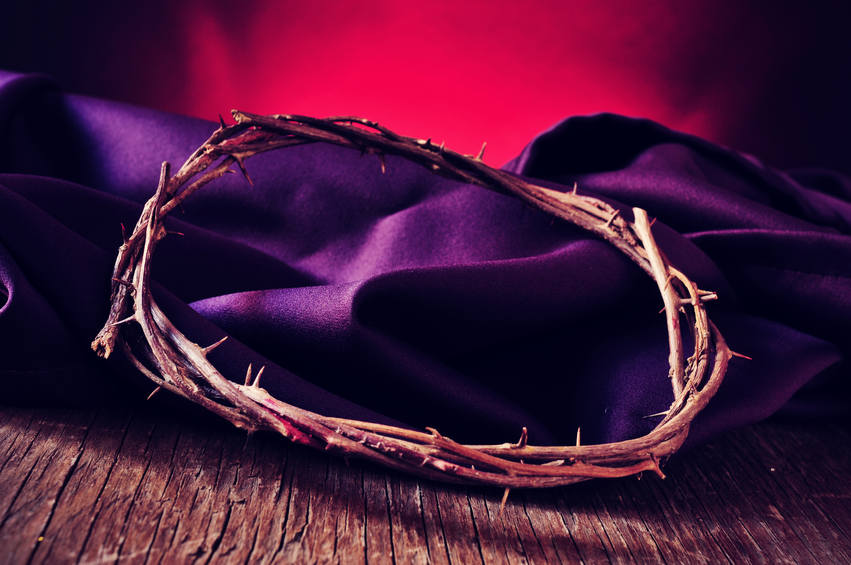

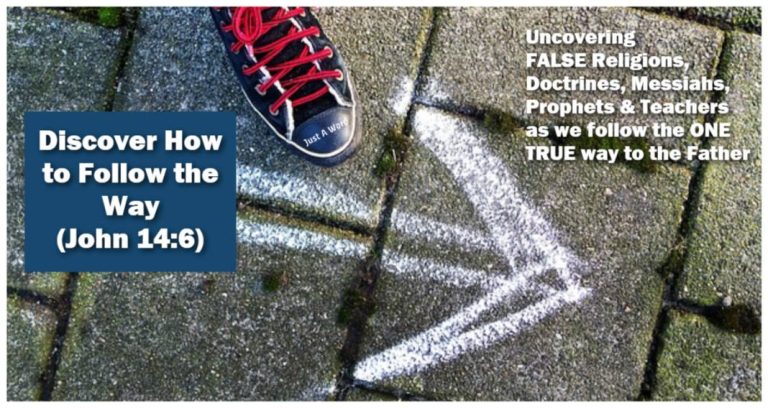

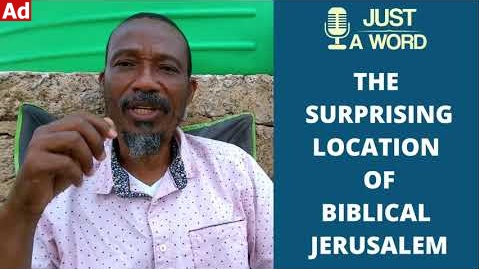
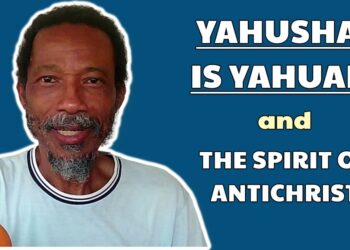
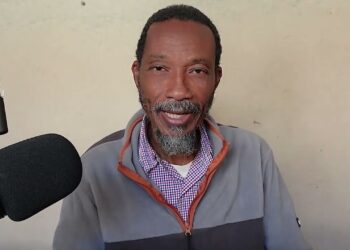


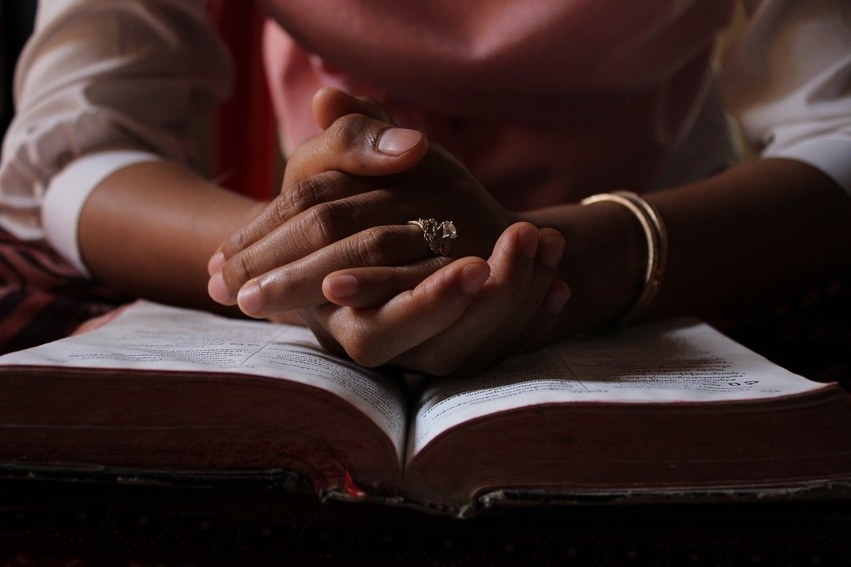
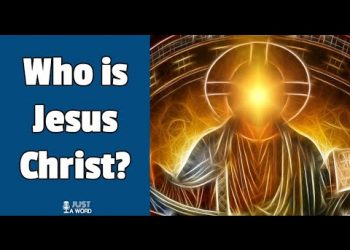
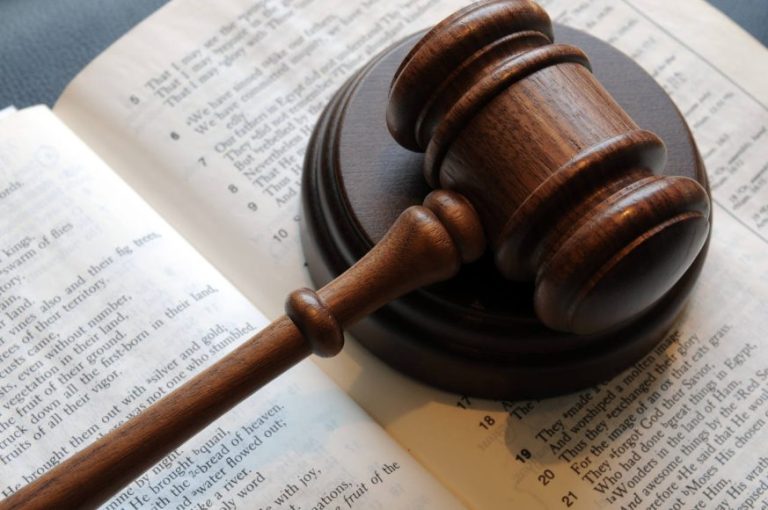







In the beginning was the Word, the Word was God and the Word was with God, the Word became flesh and duel among men, and that Word is Jesus Christ
Thanks, Ayaba. In response to your statement, here is a video I did on John 1 called the John 1 Deception. It looks at the implications of believing from that verse that ‘Jesus Christ’ is the Almighty Elohim to be worshipped as the Most High. https://www.facebook.com/brianjaro/videos/10216765631794096/
Thank you so much for publishing this teaching. The LORD revealed to me that the teaching of Jesus as having been “Fully God and fully man” was false for many reasons – worse it has led to false understandings and false, incomplete and frustrated lives in His body. This teaching brought me closer to understanding why.
You’re welcome Kay. They try their best to bring us into their idolatry.